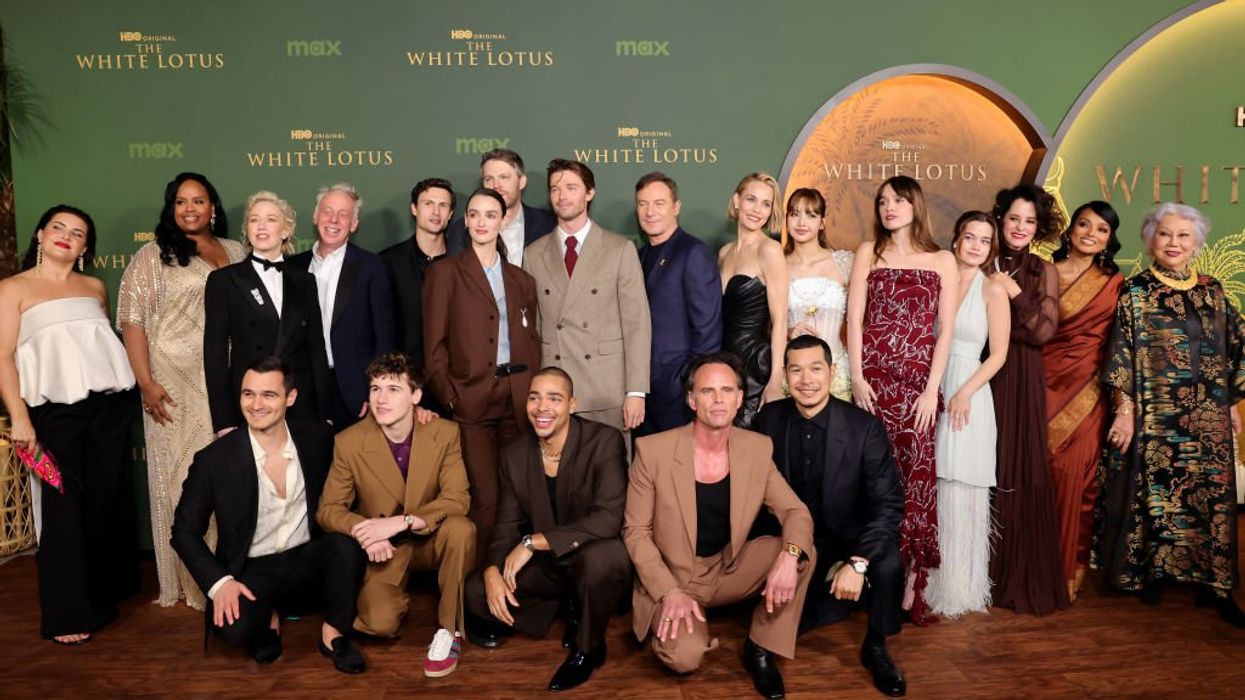As HBO's The White Lotus nears its season three finale, Mike White's dark exploration of the human condition through privilege and class has not only continued to seep into our cultural conversations but has increasingly woven itself into our political ones. The series, which has always been inherently political, made it more overt this season through the friendship of three women with clashing political views (played by Michelle Monaghan, Carrie Coon, and Leslie Bibb)—that culminated in a now-infamous dinner scene that captured the current political malaise defining so many of our American interactions today.
For an entertainment industry long viewed as American culture's most progressive stronghold, this show exists at a time when the Trump administration is censoring museums and muzzling news organizations, all coinciding with a swell of conservative voices gaining more visibility within the broader culture. Take NBC's Saturday Night Live, which, this March, invited country singer Morgan Wallen to perform for a second time, years after a video surfaced of him using a racial slur outside his Nashville home in 2021.
This new reality has created a sense of unease across progressive news and entertainment circles. Politics are already reshaping cultural and media institutions, and they are now closing in on movies and television. The idea of a sitting president pressuring Hollywood studio heads over which stories get told and which don't is no longer a wild exaggeration but a real possibility.
With the FCC recently investigating Disney's DE&I practices and YouTube TV for potentially discriminating against faith-based channels, it is only natural to ask: Is Hollywood the next to cave?
Is The "Red Wave" Reality or Perception?
The conservative shift is not just a perception. In December 2024, shortly after Trump's election victory, Pixar changed a transgender character to cisgender in an episode of its Disney+ family series, Win or Lose, a move that raised eyebrows about potential self-censorship within the industry.
Earlier this year, Amazon MGM Studios secured an exclusive partnership with Dallas Jenkins' 5&2 Studios, known for their Christian-themed productions. At the same time, it also owns the streaming rights to the old episodes of Donald Trump's The Apprentice.
Angel Studios, a faith-based entertainment company and producer of films such as Sound of Freedom, starring Jim Caviezel, has seen a surge in popularity this year. Its app has exceeded 45 million downloads worldwide, and its films occasionally outperform major studios at the box office.
The Blue Resistance
But even as the markers of a conservative wave become more apparent, Black and Latino content continues to dominate the culture and attract investment dollars.
Just this year alone, Marvel reintroduced Captain America as a Black hero—a clear and symbolic statement from Disney on how it views American values.
Beyoncé won the Grammy for Album of the Year, ironically, for a country album, in a genre that doesn't recognize her contributions to it.
Netflix committed to more diverse storytelling by renewing Tyler Perry's Beauty in Black for a second season and pledging $1 billion to Spanish-language content in Mexico over the next four years.
Despite all the political pressure that Disney is under to abandon its DE&I practices, it announced Coco 2, the Mexican-inspired sequel to the Oscar-winning original, set for release in 2029. This comes as Latinos are on track to have their biggest year on the Hollywood screen.
Hollywood's Long Dance with Both Sides
The truth is that Hollywood, in its pursuit of commercial success, has always tried to appeal to both conservative and progressive audiences. From the traditional values seen in 1950s shows like Father Knows Best to the 1970s Archie Bunker from All in the Family and the groundbreaking shows like The Mary Tyler Moore Show, Ellen, and Pose that followed, Hollywood's programming has always functioned as a mirror to America's evolving values.
However, audience behavior tells a more complicated story. According to a 2019 USC Hollywood Diversity Report, a survey of 3,000 Americans found that, despite political differences, shows like Criminal Minds, MythBusters, and America's Funniest Home Videos were popular among Americans regardless of political views.
Now, as Hollywood feels the financial and political pressures at home and increasingly relies on global streaming revenue, studios are eyeing the political center. They know that people in Middle America and around the world still watch television and go to the movies. The real challenge is making content that doesn't alienate either side.
Will Hollywood Choose a Side?
In the near future, Hollywood probably won’t be flooded with a “red wave” of TV shows or movies. Instead, we’ll likely see more shows that steer clear of heavy political messages so studios can connect with American and international viewers.
Maybe that's what makes the politics of The White Lotus dinner scene with Monaghan, Coon, and Bibb feel so memorable and significant. In a moment when both audiences and studios feel the pressure to choose sides, The White Lotus reminds us that even in a divided country, Hollywood still knows how to bring us together.Jack Rico is an entertainment journalist, TV host, and media pundit with over two decades of experience covering Latinos in media and entertainment. Recently featured on ABC News' primetime special "Latinos in Hollywood" and co-host "Brown & Black" on CUNY TV, a limited television adaptation of our Webby-nominated podcast.




















Trump & Hegseth gave Mark Kelly a huge 2028 gift